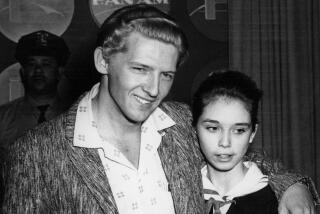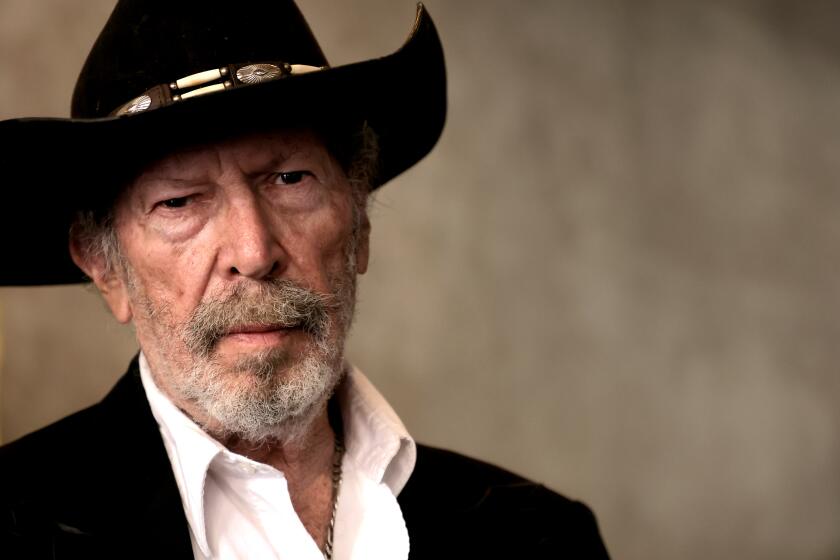Roy Kral, 80; Jazz Duo Star
Roy Kral, the pianist, singer and arranger who was half of one of the most enduring duos in jazz--Jackie and Roy--has died. He was 80.
Kral died of congestive heart failure Friday at his home in Montclair, N.J., said his wife and musical partner, Jackie Cain.
In a career spanning more than half a century, Jackie and Roy brought an effervescence to the jazz repertoire, mixing it with bebop and scat-like singing called vocalese to create their own distinct style.
They recorded more than 30 albums, covering everything from jazz standards to the work of the Beatles. Among their most popular recordings were their versions of “Mountain Greenery” and “Spring Can Really Hang You Up the Most.”
And they did it in a manner that critics embraced.
“They focused on songs that were not necessarily well known but were classic popular songs,” jazz critic Nat Hentoff said Monday. “Unlike today, you could hear the lyrics and they were worth hearing. There was a spirit in what they did that was just enticing.”
Born in Cicero, Ill., Kral took classical piano lessons as a boy. Inspired by the pianist Earl Hines, he switched to jazz in the mid-1930s. After playing in Army bands during World War II, he found work as a staff arranger at a Detroit radio station. He soon moved to Chicago and joined a quartet led by George Davis as pianist and arranger.
Despite some initial opposition from Kral, Jackie Cain, a young singer from Milwaukee, joined the group a short time later.
Kral and Cain left to join saxophonist Charlie Ventura’s “Bop for the People” combo in 1948. With Ventura, Kral served as the group’s pianist and sometime arranger. He is credited with giving the band excellent arrangements of such tunes as “Pennies From Heaven” and “Flamingo.”
The duo’s stay with Ventura was brief, lasting about a year and a half. They were married in 1949 and went out on their own to form a bebop sextet.
In the 1950s, they moved to Chicago, where they had their own television show. They worked with Ventura again for a brief time in 1953, but continued to focus on their career as a duo, playing the supper-club circuit in New York, for several years in Las Vegas and, later, Los Angeles before returning to New York in the early 1960s.
Kral formed a company that produced jingles for television commercials. Their voices were heard in TV spots for Halo shampoo, Cheerios and Plymouth.
And though the pay and hours were good, the music in commercials was less than what they wanted to pursue. They quit the commercial business and went back into jazz.
Their later performances reflected their early tasteful work.
“Their formula is as simple as ever: mainly octave unison vocals, with moments of two-part harmony, and occasional wordless passages that are too elegant to be stigmatized as scat singing,” jazz critic Leonard Feather wrote in a review of a performance in 1988.
“Their work had a delicacy, a subtlety and joy to it,” Hentoff said. “It was all done with best possible taste and first-class musicianship. They were having fun, and it was infectious.”
Kral, whose sister, singer Irene Kral, died in 1978, is survived by his wife and daughters Tiffany Bolling-Casares of Los Angeles, Dana Kral of Montclair, N.J., and Carol May of Elgin, Ill.
More to Read
The biggest entertainment stories
Get our big stories about Hollywood, film, television, music, arts, culture and more right in your inbox as soon as they publish.
You may occasionally receive promotional content from the Los Angeles Times.






